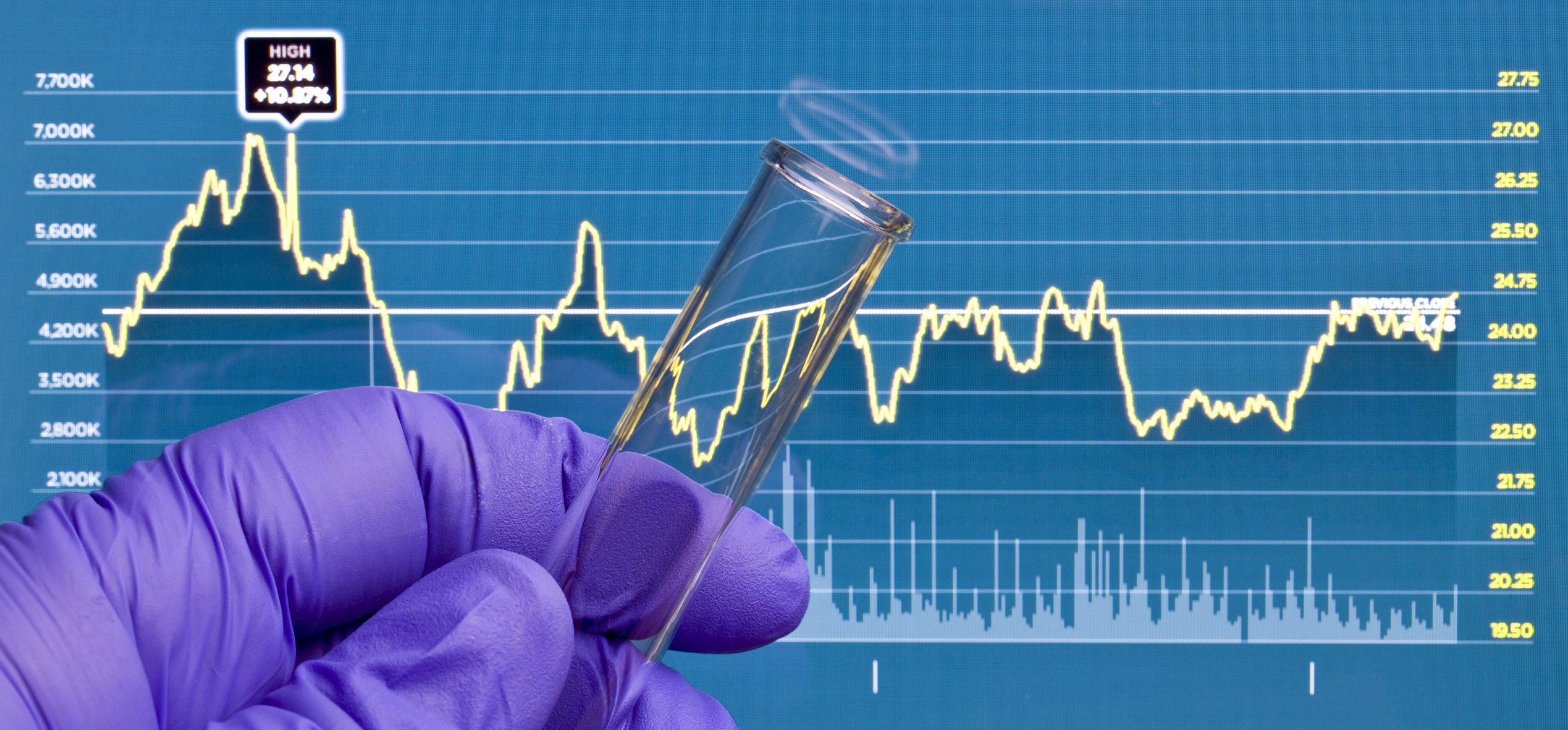Cash in on the biotech boom with three promising European picks
Ailsa Craig and Marek Poszepczynski, portfolio managers at the International Biotechnology Trust, tell MoneyWeek where they’d put their money

Get the latest financial news, insights and expert analysis from our award-winning MoneyWeek team, to help you understand what really matters when it comes to your finances.
You are now subscribed
Your newsletter sign-up was successful
Want to add more newsletters?

Twice daily
MoneyWeek
Get the latest financial news, insights and expert analysis from our award-winning MoneyWeek team, to help you understand what really matters when it comes to your finances.

Four times a week
Look After My Bills
Sign up to our free money-saving newsletter, filled with the latest news and expert advice to help you find the best tips and deals for managing your bills. Start saving today!
Biotechnology companies have been a cornerstone of the pharmaceutical industry since the mid-1990s. Today, many of these firms have matured into profitable companies. We divide biotechs into three categories: profitable, revenue growth, and development-stage. This classification helps us identify solid investments with approved products that tend to perform well during economic downturns.
Revenue-growth companies are particularly compelling. These firms have successfully navigated the rigorous clinical development process and received drug approvals from regulators. While they are generating top-line sales, they have not yet turned a profit, making them medium-risk investments, as they still need to prove themselves on the market.
Around 70% of new drug approvals are now attributed to biotechs, a notable change from a time when pharmaceutical giants dominated this area through their internal research and development (R&D) departments.
MoneyWeek
Subscribe to MoneyWeek today and get your first six magazine issues absolutely FREE

Sign up to Money Morning
Don't miss the latest investment and personal finances news, market analysis, plus money-saving tips with our free twice-daily newsletter
Don't miss the latest investment and personal finances news, market analysis, plus money-saving tips with our free twice-daily newsletter
The US leads biotech innovation, bolstered by robust funding and prestigious university hubs, but Europe also harbours strong contenders. We will highlight one European stock from each of our three categories.
Help for haemophiliacs
Let’s begin with Sobi (Stockholm: SOBI), a profitable Swedish firm specialising in haematology and immunology. It has a market value of $10.7 billion and generated sales of $2.5 billion last year.
A major portion of its sales stems from haematology, particularly treatments for patients with haemophilia, a lifelong clotting disorder that primarily affects men. It requires infusions of “clotting factors” VIII or IX to prevent uncontrolled bleeding.
The company recently launched Altuvoct, a groundbreaking therapy with a longer half-life, meaning patients can have a weekly injection rather than one every two or three days. This is especially convenient for active young boys prone to injuries that can trigger bleeding.
Thanks partly to a partnership with Sanofi, a leading French pharma conglomerate, Altuvoct’s sales are projected to exceed $1 billion, solidifying Sobi’s position as a formidable player in the biotech sector.
Ascendis Pharma (Nasdaq: ASND), a Danish company focused on treating rare diseases, is in our revenue-growth category. It is relatively large, with a market capitalisation of $10 billion. The firm boasts a unique technology platform that merges established biology with its unique sustained-release technology, which could be used for a variety of rare medical conditions.
It optimises therapeutic efficacy with far fewer injections, leading to a much better experience for patients. Analysts predict a path to profitability as early as next year, making it an interesting revenue-growth stock with the potential for profitability.
Lastly, we have UniQure (Nasdaq: QURE), a riskier stock. UniQure is a development-stage gene-therapy company from the Netherlands worth $700 million.
With $300 million in cash, UniQure is advancing its ambitious pipeline, notably targeting Huntington’s disease. UniQure’s gene therapy aims to silence the toxic Huntington protein responsible for neuronal degeneration.
Recently, the gene treatment was designated a “breakthrough therapy” by America’s Food and Drug Administration (FDA) – an encouraging sign. However, the inherent risks are considerable; if clinical trials do not demonstrate sufficient efficacy, it could lead to a dramatic decline in the company’s share price.
This article was first published in MoneyWeek's magazine. Enjoy exclusive early access to news, opinion and analysis from our team of financial experts with a MoneyWeek subscription.
Get the latest financial news, insights and expert analysis from our award-winning MoneyWeek team, to help you understand what really matters when it comes to your finances.
Ailsa Craig has been the lead portfolio manager of International Biotechnology Trust (IBT) since 2021.
Ailsa has managed IBT since 2006. She began her career at Insight Investment / Rothschild Asset Management before joining Baring Asset Management as a research analyst. She holds a BSc (Hons) in Biology from the University of Manchester, the IMC and the Securities Institute Diploma.
-
 Should you buy an active ETF?
Should you buy an active ETF?ETFs are often mischaracterised as passive products, but they can be a convenient way to add active management to your portfolio
-
 Power up your pension before 5 April – easy ways to save before the tax year end
Power up your pension before 5 April – easy ways to save before the tax year endWith the end of the tax year looming, pension savers currently have a window to review and maximise what’s going into their retirement funds – we look at how
-
 Exciting opportunities in biotech
Exciting opportunities in biotechBiotech firms should profit from the ‘patent cliff’, which will force big pharmaceutical companies to innovate or make acquisitions
-
 Vaccines inject billions into Big Pharma – how to profit from the sector
Vaccines inject billions into Big Pharma – how to profit from the sectorThe vaccines subsector received a big fillip from Covid, but its potential extends far beyond combating pandemics. Here's what it means for investors
-
 Investing in UK universities: how to spin research into profits
Investing in UK universities: how to spin research into profitsUK universities are a vital economic asset, but they are also Britain's 'equivalent of Gulf oil.' There are opportunities here for investors
-
 Healthcare stocks look cheap, but tread carefully
Healthcare stocks look cheap, but tread carefullyShares in healthcare companies could get a shot in the arm if uncertainty over policy in the US wanes, but are they worth the risk?
-
 UK equities: where to find a great British bargain
UK equities: where to find a great British bargainUK equities are staging a comeback, but there’s still plenty of value out there, says Rupert Hargreaves
-
 Precision-engineered profits: How to invest in genomics
Precision-engineered profits: How to invest in genomicsDevelopments in genomics are enabling the rise of personalised medicine, with therapies tailored specifically for individuals. Smart investors should buy in now, says Matthew Partridge
-
 Anne Wojcicki: the 'daring' 23andMe CEO who reached too far
Anne Wojcicki: the 'daring' 23andMe CEO who reached too farProfile Anne Wojcicki dreamed of a revolution in personal genomics and medicine and set up 23andMe in 2006. Its collapse into bankruptcy provides a cautionary tale
-
 Cash in on the biotech sector with specialist trust BioPharma
Cash in on the biotech sector with specialist trust BioPharmaOpinion BioPharma has an attractive niche in lending to asset-rich biotechnology companies


